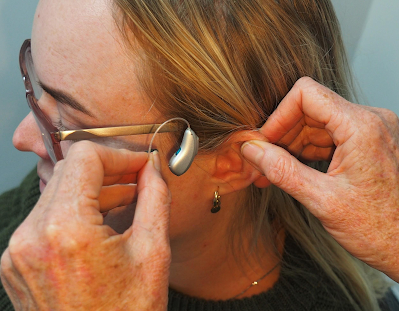Sensorineural hearing loss is a hearing loss that occurs when the inner ear’s sensory cells, or “hair cells,” are damaged. This happens due to many different reasons, including:
- Exposure to loud noise over time
- Inherited factors (such as a family history of hearing loss)
- Certain medical conditions (such as meningitis or otosclerosis)
Suppose you suspect that you have sensorineural hearing loss. In that case, it’s important to seek professional help as soon as possible to prevent further damage and ensure you get the best possible treatment.
Causes of sensorineural hearing loss?
There’re many causes of sensorineural hearing loss, but the most common are ear infections, loud noises, and age. Detailed information can be found below.
Ear Infections: Ear infections are the most common cause of sensorineural hearing loss. They can damage the cells in the inner ear that help us hear. Ear infections can also make it harder for your ears to drain properly, leading to permanent hearing loss. Signs & symptoms of an ear infection include fever, pain when you move your ear and discharge from your ear. Consult a doctor if you notice any of these signs or symptoms.
Loud Noises: Loud noises, like firearms, motorcycles, or concerts, can also cause sensorineural hearing loss. In addition, exposure to loud noise over time can damage the delicate hair cells in your inner ear. This damage can cause them to stop working properly and cause hearing loss. Signs and symptoms of noise-related hearing loss include tinnitus (ringing in your ears), difficulty understanding people speaking quietly, and trouble listening to conversations. See a doctor if you’re experiencing any of these symptoms.
Age: As we age, our hearing abilities gradually decline. This is because the hair cells in our inner ears start to die off. Some people are more likely to experience sensorineural hearing loss than others, but the condition can occur at any age. Signs & symptoms of sensorineural hearing loss include difficulty understanding speech, hearing people speaking loudly, and difficulty listening in conversations.
Treatment for Sensorineural Hearing Loss
When it comes to treating Sensorineural Hearing Loss, there are a few different available options. Depending on the severity, a patient may require either medical or surgical intervention. Medical treatment for Sensorineural Hearing Loss typically involves hearing aids or cochlear implants. Cochlear implants are surgically implanted devices that help to restore normal hearing by converting sound waves into electrical signals that the brain can process.
Hearing aids are devices that help amplify sounds and make them more audible. They come in two main types: soft and hard. Hard hearing aids use electronic amplification technology to send a louder signal directly to the ear. Soft hearing aids use vibrations to send the same amplified signal to the ear.
Surgical intervention for Sensorineural Hearing Loss may be required if medical treatment is ineffective. Surgical options for Sensorineural Hearing Loss include cochlear implant surgery, hearing aid surgery, or a combination of the two.
If you are experiencing difficulties hearing, it is important to consult with an expert. There are several potential causes of sensorineural hearing loss, and your specific situation will require a more in-depth examination. However, some common causes of sensorineural hearing loss include age, loud noise exposure, genetics, and disease. If you are unsure about the cause of your hearing loss or if it is worsening, consult the hearing health experts at Attune, who can determine the best course of action for you.










